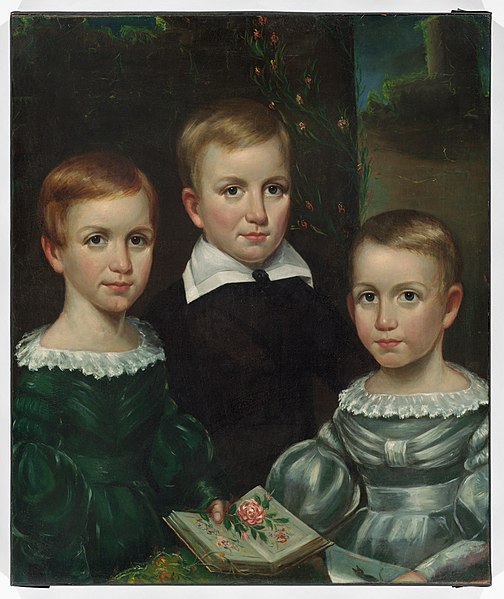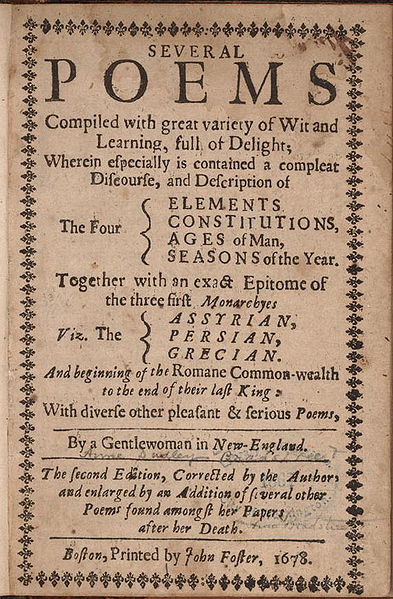Emily Elizabeth Dickinson was an American poet. Little-known during her life, she has since been regarded as one of the most important figures in American poetry. Dickinson was born in Amherst, Massachusetts, into a prominent family with strong ties to its community. After studying at the Amherst Academy for seven years in her youth, she briefly attended the Mount Holyoke Female Seminary before returning to her family's home in Amherst. Evidence suggests that Dickinson lived much of her life in isolation. Considered an eccentric by locals, she developed a penchant for white clothing and was known for her reluctance to greet guests or, later in life, even to leave her bedroom. Dickinson never married, and most of her friendships were based entirely upon correspondence.
The Dickinson Children (Emily on the left), c. 1840. From the Dickinson Room at Houghton Library, Harvard University.
The Evergreens, built by Edward Dickinson, was the home of Austin and Susan's family.
In September 2012, the Amherst College Archives and Special Collections unveiled this daguerreotype, proposing it to be Dickinson (left) and her friend Kate Scott Turner (c. 1859); it has not been authenticated.
Thomas Wentworth Higginson in uniform; he was colonel of the First South Carolina Volunteers from 1862 to 1864.
American poetry refers to the poetry of the United States. It arose first as efforts by American colonists to add their voices to English poetry in the 17th century, well before the constitutional unification of the Thirteen Colonies. Most of the early colonists' work was similar to contemporary English models of poetic form, diction, and theme. However, in the 19th century, an American idiom began to emerge. By the later part of that century, poets like Walt Whitman were winning an enthusiastic audience abroad and had joined the English-language avant-garde.
Title pagesecond (posthumous) edition of Anne Bradstreet's poems, 1678
Phillis Wheatley, a slave, wrote poetry during the colonial period.
Henry Wadsworth Longfellow in 1873.
Walt Whitman








